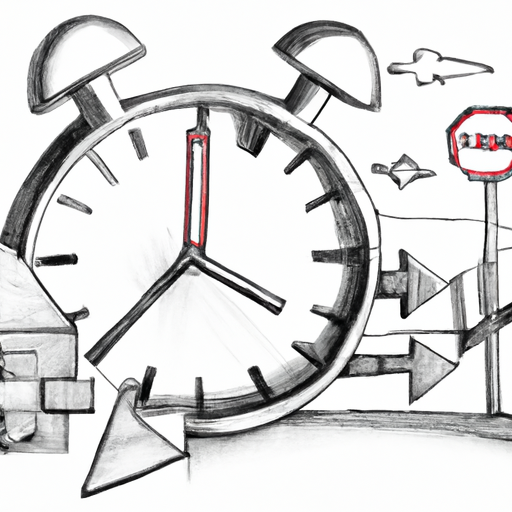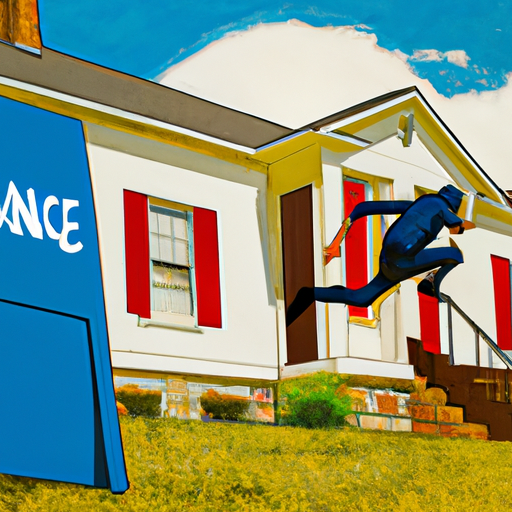The article provides an overview of the home closing process, including key steps and factors that can affect timing. He also offers tips on simplifying the process and overcoming common obstacles.
Buying a home is an exciting milestone, but the process of closing on a home can often feel overwhelming. From paperwork to inspections and negotiations, there are many steps involved in completing a purchase. One of the most common questions among home buyers is, “How long does it take to close on a house?” In this article, we’ll provide a comprehensive guide to help you understand the home closing process, factors that affect timing, expected average timings, tips for streamlining the process, and potential obstacles you may encounter along the way. Whether you are a first-time home buyer or experienced, this article will provide valuable information to help you close on your dream home more smoothly and efficiently.
- 1. Understanding the Home Closing Process: A Step-by-Step Guide
- 2. Factors affecting the terms of closing the house
- 3. Average home closing times: what to expect
- 4. Tips for optimizing the closing process and reducing delays
- 5. Potential obstacles to closing a home and how to overcome them
1. Understanding the Home Closing Process: A Step-by-Step Guide

Understanding the Home Closing Process: A Step-by-Step Guide
Closing on a home can be an exciting and nerve-wracking experience. This is the final step in the home buying process, where ownership of the property is transferred from the seller to the buyer. While the exact timeline can vary depending on various factors, understanding the step-by-step process can help you navigate through it easily.
1. Offer and Acceptance: The first step in the closing process is to make an offer on a home and have it accepted by the seller. This is usually done with the help of a sales contract, which outlines the terms of the sale.
2. Inspection and Appraisal: Once an offer has been accepted, it is imperative to have the home inspected to identify any potential problems or repairs needed. In addition, the lender will require an appraisal to ensure that the value of the property matches the loan amount.
3. Loan Approval and Underwriting: Once the review and appraisal is complete, the next step is
2. Factors affecting the terms of closing the house

There are several factors that can affect the timing of a home closing. These factors can vary depending on the specific circumstances of the buyer, seller and the overall real estate market. Here are some key factors to consider:
1. Mortgage approval process. One of the most important factors that can affect closing times is the mortgage approval process. It usually takes about 30-45 days for the lender to complete the necessary documents, verify the buyer’s financial information and approve the loan. However, this period may be longer if there are delays in providing the necessary documents or if the lender has a large number of loan applications.
2. Property Appraisal and Inspection: Before finalizing the sale, most buyers choose to have the property appraised and inspected. An appraisal determines the fair market value of a property, while an inspection assesses its condition. If any issues are discovered during the inspection, additional time may be required to negotiate repairs or concessions, delaying the closing process.
3. Title search and
3. Average home closing times: what to expect

When it comes to closing on a home, it’s important for potential home buyers to have a clear understanding of the average time frame they can expect. While the length of the closing process can vary based on a variety of factors, including location, financing and the complexity of the deal, there are some general guidelines that can help buyers prepare.
On average, it takes 30 to 45 days to close on a home. This time period begins when the seller accepts the buyer’s offer and ends on the final closing date. However, it is important to note that this estimate is only an average and the actual time required to close may be longer or shorter depending on several factors.
One major factor that can affect closing times is the type of financing used. For example, conventional loans typically require longer processing times compared to government loans such as FHA or VA loans. This is because conventional loans often involve more stringent underwriting processes and may require additional documentation.
4. Tips for optimizing the closing process and reducing delays

There are a few tips that can help streamline the closing process and reduce potential delays. These tips can ensure a smooth and efficient closing for both buyers and sellers.
1. Be Prepared and Organized: Before you begin the closing process, it is very important to gather all the necessary documents and information. This includes financial statements, tax returns, proof of income and any other relevant documents. Being organized and having all the necessary documents can help speed up the process.
2. Communicate Quickly: Effective communication is key to avoiding delays during the closing process. Stay in close contact with your real estate agent, lender, and any other parties involved in the transaction. Respond quickly to any requests for additional information or documents. Early communication can help resolve any potential problems before they become serious.
3. Schedule a Pre-Closing Inspection: Before the closing date, schedule a property inspection to make sure everything is in order. This allows you to identify any potential problems or repairs that may be needed
5. Potential obstacles to closing a home and how to overcome them

Closing on a home can be an exciting but difficult process. While it usually takes 30 to 45 days to close on a home, there are potential obstacles that can arise and cause delays. It’s important to be aware of these obstacles and know how to overcome them to successfully close on a home.
1. Financing problems. One of the most common obstacles to closing on a home is financing. If a buyer’s loan application is not approved or if there are delays in securing the loan, the closing process can be significantly delayed. To overcome this, it is imperative for buyers to get pre-approved for a loan before starting the home search process. In addition, having all the necessary documents and financial information can help speed up the financing process.
2. Appraisal problems: Appraisal is carried out to determine the market value of the property. If the appraisal is lower than the agreed purchase price, this may create obstacles to closing the deal. In such
In summary, the process of closing on a home can be both exciting and stressful for home buyers. Understanding the step-by-step process and the factors that affect closing timelines is critical to managing expectations. While average home closing times can vary, it’s important to be prepared for potential delays and obstacles that may arise. By following tips to streamline the closing process and being proactive in overcoming any obstacles, homebuyers can help ensure a smoother and more efficient closing. Ultimately, with the right knowledge and preparation, closing on a home can be a successful and rewarding milestone in your home buying journey.
 Purex find
Purex find